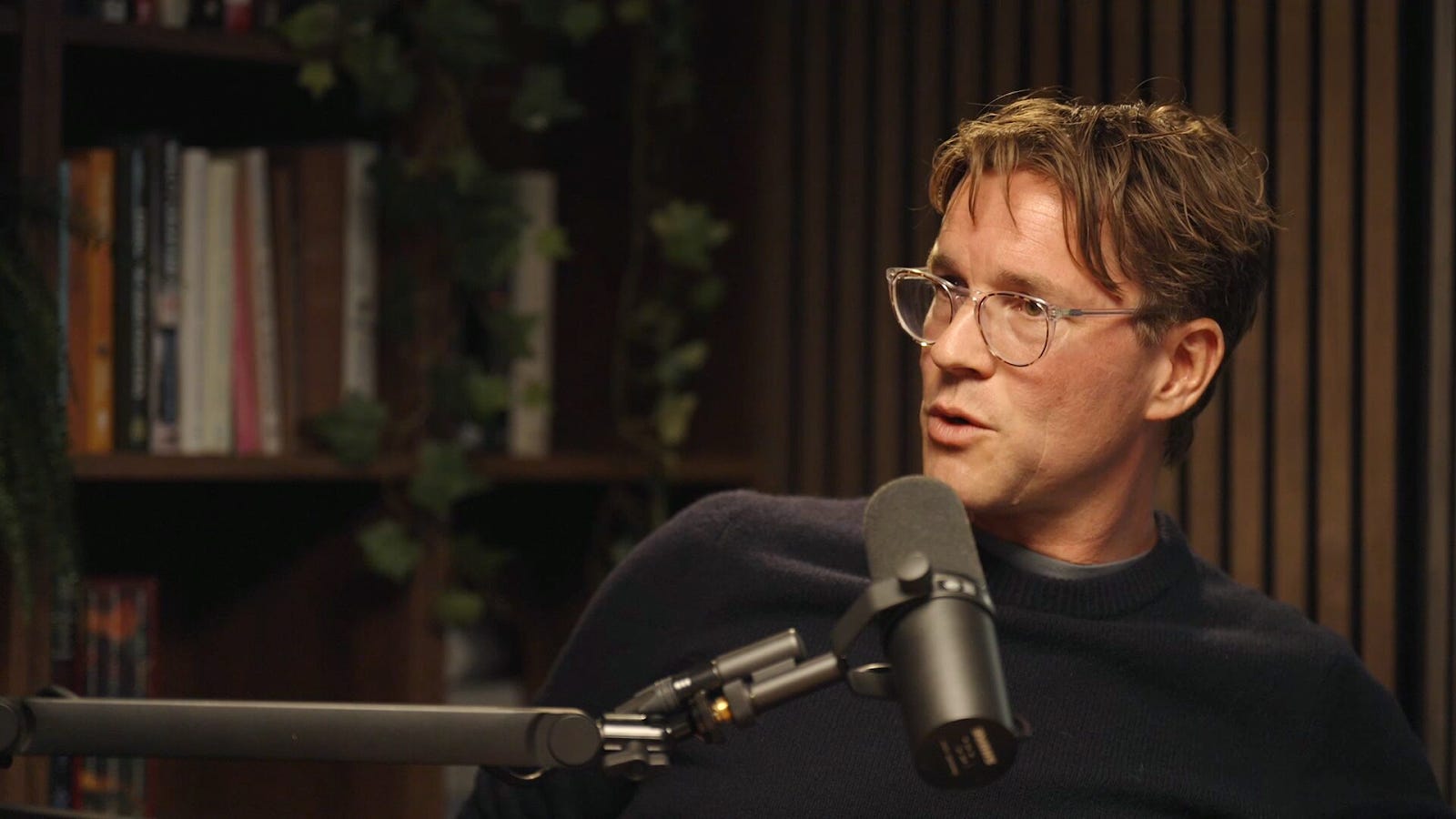“China and America: The Error Bounds Are Larger Than We've Seen in Decades”: An Interview with Jordan Schneider
Description
🇨🇳 After publishing my in-depth piece on advanced manufacturing in China, I was struck by the volume and intensity of feedback it generated. The numerous interactions and follow-on discussions made it clear that China, once again, emerged as a subject I needed to explore much more deeply.
As is often the case when I embark on such a learning journey, one of my go-to sources is Jordan Schneider's newsletter and podcast ChinaTalk, which I've been following for many years.
* Jordan's work stands out for two compelling reasons: its unwavering focus on China—with a more recent pivot toward technology and US-China rivalry; and its refreshingly multidisciplinary approach. ChinaTalk isn't merely a publication about technology, economics, and finance, but one where culture, history, institutions, and comparative analysis of different regimes and countries occupy substantial space, offering a uniquely valuable perspective for Westerners seeking to better understand China.
Jordan and I have known each other for years, following each other's work (I believe we started writing on Substack around the same time), and occasionally exchanging thoughts via social media and email. However, this interview marks our first extensive face-to-face conversation, and I'm delighted to have created this opportunity to deepen a relationship that I expect will be instrumental in continuing to make sense of China in the years ahead.
In our conversation, Jordan and I explore a wide range of topics: his personal journey learning Mandarin and living in China; the volatile cycles of Western perception regarding China's rise; the evolution of China's technological capabilities from hardware manufacturing to software innovation; the critical role of China's governance system as the great unknown variable; the complex dynamics of US-China competition; Europe's precarious position caught between these superpowers; and the growing challenges facing Western China analysts who can no longer conduct on-the-ground research. Throughout, Jordan brings nuance and historical context to these discussions, challenging simplistic narratives about China's trajectory.
I should note that Jordan gently scolded me when I mentioned wanting to publish this interview in written form only. He challenged me to release the audio track as well, pointing out that it gives the audience more flexibility in how they consume the content, and that the audio version provides a more intimate experience of connecting with both host and guest, as well as capturing the unique alchemy of our conversation. So feel free to read the (slightly edited) transcript below, or listen to the (also edited) audio track above.
* I should mention that I haven't yet decided whether I will resume podcasting on a more regular basis as part of Drift Signal, so I didn't include formal elements such as an intro or opening song. I hope you enjoy it anyway!
Introduction and Background
Hi, Jordan.
Thanks so much. It's such a pleasure to be here. I'm a big fan of yours.
Oh, thank you. I'm a big fan of yours as well! Thank you for making the time.
I'd like to start with maybe a few words about yourself and your relationship with China. Where does it come from?
My name is Jordan. I run a podcast and newsletter called ChinaTalk, where we cover China technology and US-China relations. I lived in China from 2017 to 2020. I started there as a graduate student and spent time at a tech company. It's defined my professional life for the past decade. I think China is a fascinating, wonderful place with incredibly dynamic people, culture, and history. It's also America's strategic competitor, and reconciling that tension is complex. I feel a connection to China at a high level, but have learned enough about the place to have some strong issues with the government and the direction it's taking the country. This is a tension that myself and everyone in the West who engages with China professionally has had to grapple with for a very long time.
You mentioned being there from 2017 to 2020. Does it mean that you had to come back because of COVID?
Yes. I was in Malaysia for Chinese New Year of 2020, which is when COVID started in China. I was scuba diving at a resort where 150 of the 200 people were from Wuhan with strong Wuhan accents. By day four, we started coughing and got very sick. I flew back to the US to see my parents because China was the only place with a pandemic at that time. Then the world shut down. Foreigners couldn't enter China regardless of their visa status, and at some point, I had to move my life back to the US.
I guess you still had to get your stuff out?
Yes, it was in boxes for a while, then on a boat. I think it showed up six months later. I didn't even bring a laptop to Malaysia because it was supposed to be a relaxing trip.
Learning Mandarin: “Electric Brain” and Beyond
You mentioned recognising the Wuhan accent, which reminds me and should remind the audience that you're fluent in Mandarin.
Can you explain how you learned Mandarin? For us Europeans who are not native English speakers, we have to learn English first. And then if you tell me after that you have to learn Mandarin, I'd say that's just too much. How did you manage it?
I wouldn't say fluent. I would say on the journey. I started in 2017. It's been eight years now. Chinese is a very vocabulary-dependent language as opposed to romance languages, which are much more grammar-forward. With romance languages, if you know one, you get 50% of the vocabulary for free when learning another, or even 75% if you're going from Spanish to Italian.
Since I'm not living in China anymore, my vocabulary and comprehension are weirdly spiky. I can read a Xi Jinping speech very well or understand discussions about semiconductors or AI, but casual conversations or following multiple friends talking at once becomes much more difficult.
There are aspects of Chinese which are much easier than people expect. Once you get over the initial challenge of the writing system, the characters build into each other. Words, especially modern ones, are very logical. The word “computer”, for instance, translates into “electric brain,” which is fun. You're making new words with ancient characters.
The grammar isn't difficult, which means you can ramp up quickly. There's not the pain of people correcting you on subjunctives like I experienced with four years of high school Spanish. With Chinese, once you know the words, you can pretty much say what you want to say.
How do you practice in the US? Do you have a tutor or friends with whom conversation in Mandarin is mandatory?
I have a friend group in New York City. There's a cool diaspora community worldwide now. People used to leave China only for economic reasons, especially after '89, but over the past decade, there's been a new wave. If you're gay or lesbian, or uncomfortable with the politics and have enough money to study overseas, often the choice is to stay abroad, not just for the salary but for the lifestyle.
In New York, there's a fun left-wing, feminist monthly comedy event all in Chinese. You see people doing stand-up making fun of Xi and masculinity in China. This is speech that's not allowed in the PRC. I get to participate a bit in this diaspora community. I also do online tutoring through Italki.com, which is incredible—you can book tutors for $5-15 an hour.
I watch a lot of Chinese TV too. The best show last year featured four celebrity couples who'd been married for at least 10 years and were all on the verge of divorce. Initially, you think there's no way this is real—who would sign up for this? But after one episode, you realise it's incredibly authentic. No one would fake having the arguments they've been having with their spouse for 10 years in front of the whole country. I try to have at least 2-3 hours of Chinese from podcasts, TV, and conversations every day to keep progressing.
The Sine Wave of US-China Relations
The reason I reached out to suggest we record this interview is because I listened to what I think was your latest episode of ChinaTalk [as of 28 April 2025], where you interview Rush Doshi. I'll let you tell more about Rush and his work. But yesterday, I believe you wrote that it was probably the most important episode of the year.
In this epis
























